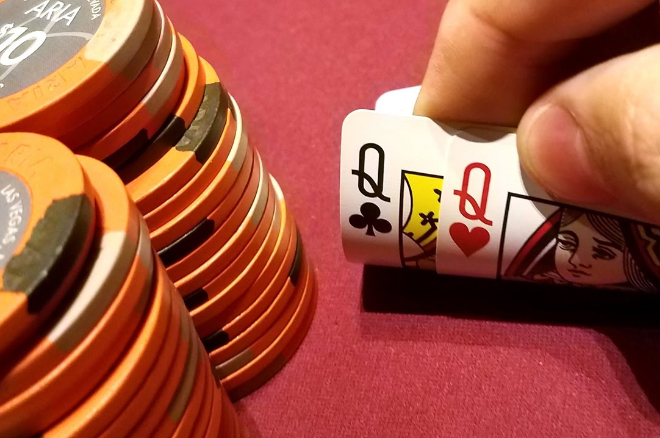Like the high-stakes tension at Pirots 4 UK ‘s tables, the fluorescent glare of university libraries exposes a shared truth: whether holding a royal flush or a research draft, victory demands playing imperfect hands with perfect strategy. In both spaces, players face high-stakes decisions with incomplete information, managing risk while building toward a winning hand. For doctoral students staring down the barrel of dissertation deadlines, the parallels between poker and academic writing run deeper than mere metaphor—they offer a strategic roadmap for navigating one of academia’s most challenging endeavors.
Reading the Table: Understanding Your Academic Audience

Professional poker players spend considerable time studying their opponents, cataloging tells and tendencies before making significant moves. Academic writers must employ similar reconnaissance when crafting their dissertations. Your committee members, peer reviewers, and broader scholarly community each bring distinct perspectives, biases, and expectations to your work.
Just as a poker player adjusts their strategy based on whether they’re facing tight-aggressive opponents or loose-passive players, successful dissertation writers tailor their arguments to their specific academic environment. Is your advisor known for favoring theoretical frameworks over empirical data? Does your external examiner have a reputation for challenging methodological choices? Understanding these dynamics allows you to anticipate objections and strengthen your position before the cards are revealed.
The Art of Calculated Risk
Poker teaches that not all risks are created equal. The concept of “pot odds”—weighing the potential reward against the probability of success—translates directly to dissertation decision-making. Should you pursue that ambitious theoretical framework that could revolutionize your field, or stick with the safer, more established approach? The answer lies in calculating your academic pot odds.
Consider the potential payoff of your choices against the likelihood of success and the consequences of failure. A groundbreaking argument that falls flat might derail your defense, but a pedestrian approach that breaks no new ground might fail to meet the innovation standards expected of doctoral work. The skilled academic writer, like the experienced poker player, learns to take calculated risks at strategic moments while maintaining a strong foundation.
Bluffing vs. Transparency: The Confidence Game
While outright deception has no place in academic writing, the poker concept of projecting confidence even when your hand isn’t perfect applies directly to dissertation craft. Academic writing demands that you present your arguments with authority, even when you’re working with limited data or navigating theoretical uncertainties.
This doesn’t mean fabricating evidence or overstating conclusions. Instead, it means learning to write with conviction about the implications of your research while appropriately acknowledging limitations. Just as a poker player can win with a mediocre hand through skillful play and confident betting, an academic writer can make compelling arguments even when working with imperfect data by demonstrating rigorous methodology and thoughtful analysis.
Managing Your Bankroll: Resource Allocation
Professional gamblers understand bankroll management—never risking more than they can afford to lose on any single hand. Dissertation writers must apply similar discipline to their intellectual and temporal resources. Each chapter, argument, and research direction represents an investment of limited time and energy.
The temptation to chase every interesting tangent or explore every potential avenue can quickly deplete your resources and derail your timeline. Successful dissertation writers learn to fold weak arguments early, doubling down only on the strongest elements of their research. This might mean abandoning a cherished theory that doesn’t quite fit your data, or cutting a beautifully written section that doesn’t advance your central argument.
The Long Game: Patience and Persistence
Tournament poker rewards patience and strategic thinking over flashy plays and short-term gains. Similarly, dissertation writing is fundamentally a long-game endeavor that requires sustained focus and incremental progress. The temptation to go “all-in” with dramatic gestures—like completely restructuring your argument weeks before your defense—often leads to disaster.
Instead, successful dissertations emerge from steady, methodical progress. Like a poker player who gradually accumulates chips through small, smart decisions rather than spectacular bluffs, effective academic writers build their arguments through careful research, rigorous analysis, and incremental refinement of their ideas.
Knowing When to Fold
Perhaps the most valuable lesson poker offers academic writers is knowing when to abandon a losing position. In poker, the ability to fold a hand you’ve already invested in—despite the sunk costs—often separates winning players from losing ones. Academic writers face similar decisions when research directions prove unfruitful or theoretical frameworks fail to support their data.
The dissertation writer who spends months trying to salvage a flawed methodology or force-fit inconvenient findings into a predetermined framework is like the poker player who chases bad beats with good money. Sometimes the most strategic decision is to acknowledge that your initial approach isn’t working and pivot to a stronger position, even if it means sacrificing work you’ve already completed.
Playing the Percentages: Evidence and Argumentation
Successful poker players make decisions based on probability and expected value rather than hunches or wishful thinking. Academic writers must employ similar analytical rigor when evaluating evidence and constructing arguments. Each claim in your dissertation should be supported by the strongest available evidence, and your conclusions should reflect the weight of that evidence rather than your preferred outcomes.
This probabilistic thinking extends to how you present competing theories and alternative explanations. Just as a poker player considers the range of possible hands their opponent might hold, academic writers must acknowledge the range of possible interpretations of their data and explain why their conclusions represent the most likely scenario.
The Final Hand: Defending Your Dissertation
The dissertation defense mirrors the final table of a poker tournament—all your preparation and strategic thinking culminate in a high-pressure performance where stakes are highest. Your ability to read the room, respond to unexpected challenges, and maintain confidence under pressure determines whether you cash in your years of investment.
Like a seasoned poker player who remains calm during crucial moments, successful dissertation defenders prepare for various scenarios, anticipate potential objections, and maintain their composure when faced with difficult questions. They understand that the defense isn’t about having perfect answers to every question, but about demonstrating mastery of their subject and the intellectual flexibility to engage with new challenges.
The intersection of poker strategy and academic writing reveals a fundamental truth: both endeavors reward those who combine analytical rigor with strategic thinking, patience with calculated aggression, and confidence with intellectual humility. While the stakes in academic writing might not involve money changing hands across a felt table, the principles that separate winning poker players from losing ones can help dissertation writers navigate the complex, high-pressure world of doctoral research.
The next time you sit down to work on your dissertation, consider channeling your inner poker pro. Read your audience, calculate your risks, manage your resources wisely, and remember that sometimes the most strategic play is knowing when to fold and when to go all-in. In both poker and academia, fortune favors the prepared mind—and the well-played hand.

